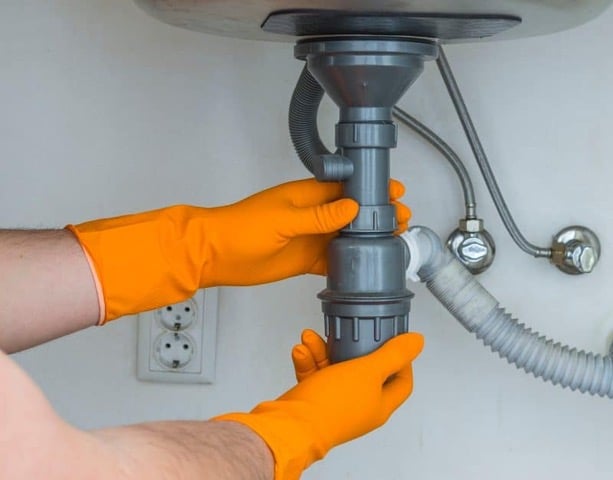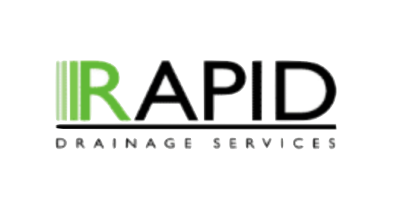Why DIY Drain Cleaning Can Be Dangerous?
Why DIY Drain Cleaning Can Be Dangerous?
When a drain clogs, most people’s first instinct is to grab a plunger or a bottle of drain cleaner and have a go themselves. After all, how hard can it be, right?
The truth is, quite a lot can go wrong. While DIY drain cleaning might seem like a quick, cheap solution, it often causes more harm than good. From chemical burns and pipe damage to costly repairs and health risks, that “simple fix” can turn into an expensive plumbing nightmare.
At Rapid Drainage, we’ve seen it all, melted pipes, flooded kitchens, and homeowners who learned the hard way that some jobs are best left to professionals.
Here’s why DIY drain cleaning can be dangerous, and why calling a qualified drainage expert is the safer (and smarter) option every time.
1. Chemical Drain Cleaners: More Harm Than Help
One of the most common DIY “solutions” is pouring a chemical drain cleaner down the sink or toilet. These products promise instant results – but what the labels don’t always tell you is how corrosive and hazardous they can be.
 They’re Toxic to You
They’re Toxic to You
Many commercial drain cleaners contain powerful acids or caustic soda (lye). These chemicals can cause:
Severe skin burns and eye damage
Dangerous fumes that irritate lungs and throat
Risk of poisoning if inhaled or ingested
Even handling or storing them improperly can be risky. According to the NHS, chemical burns from drain cleaners are a common household injury – and one that can cause permanent damage.
 They’re Toxic to Your Pipes
They’re Toxic to Your Pipes
Drain cleaners don’t discriminate, they attack the clog and your pipe material. Over time, they can corrode metal, weaken PVC joints, and eat through seals, causing leaks.
And if you use these chemicals regularly, that damage builds up silently until one day, your pipes give way – leading to flooding or expensive replacements.
Better alternative: For minor slow drains, try hot water or a natural mix of baking soda and vinegar. But if that doesn’t work, don’t escalate to chemicals, it’s time to call a professional.
2. DIY Tools Can Cause Serious Pipe Damage
You might have seen plumbing snakes or “drain augers” for sale online and thought, “I can handle that.” Unfortunately, these tools, when used incorrectly, can do more damage than good.
 Misuse of Drain Snakes
Misuse of Drain Snakes
A drain snake works by breaking through or retrieving the blockage, but it requires precision. Without experience, you can:
Scratch the interior of your pipes, leading to corrosion
Puncture or crack old pipes
Push the blockage deeper, making it harder to reach later
 Over-Plunging Problems
Over-Plunging Problems
Plungers are great for surface-level clogs, but overzealous plunging can damage seals and joints. If too much pressure builds up, it can even blow out pipe connections behind walls or under floors.
So instead of clearing the clog, you’ve just created a leak, one that might go unnoticed until you see water damage or mould spreading.
3. Hidden Health Risks
Blocked drains aren’t just inconvenient — they’re also a breeding ground for bacteria, mould, and other nasties you really don’t want to come into contact with.
When you attempt a DIY clean-up without the right gear, you’re exposing yourself to potential pathogens and harmful gases.
 Common risks include:
Common risks include:
E. coli and salmonella from sewage backups
Methane gas and hydrogen sulphide, which can cause nausea or headaches
Mould spores, which can trigger allergies or respiratory problems
Professional drainage engineers wear protective equipment and use specialist tools to deal with these risks safely. A bucket and rubber gloves simply aren’t enough.
4. The Root Cause Often Gets Missed
DIY methods are typically short-term fixes. They might clear a surface clog but won’t identify why the problem happened in the first place.
For example, repeated blockages could be caused by:
Tree roots infiltrating underground pipes
Broken or collapsed drains
Grease build-up deep within the system
Misaligned joints from ground movement
Without proper inspection tools, you’ll never know. And as long as the root cause remains, the problem will keep coming back, often worse each time.
At Rapid Drainage, we use CCTV drain surveys to identify the exact cause of a blockage. This allows us to fix the issue permanently, not just patch it up temporarily.

5. DIY Can Cost You More in the Long Run
It’s easy to assume DIY saves money. But in drainage work, the opposite is usually true.
When DIY repairs go wrong (and they often do), they can lead to:
Burst pipes
Flooding
Property damage
Full system replacements
What might have been a £100 professional job can quickly turn into a £1,000+ repair bill.
Meanwhile, hiring a qualified drainage expert means:
The job’s done safely and correctly the first time
You get a long-term solution instead of a temporary fix
Your system gets checked for any hidden issues
That’s not an expense , that’s preventative maintenance that saves you stress, time, and money.
6. Professionals Have the Right Equipment (and the Know-How)
Professional drain engineers use specialist equipment like:
High-pressure water jetting systems – to clear clogs safely and effectively
CCTV drain cameras – to inspect pipes without digging
Root cutting and descaling tools – to fix problems deep within the system
These tools are designed for efficiency and precision, ensuring your drains are cleared properly without risking damage.
More importantly, professionals are trained to diagnose underlying issues that DIY methods miss, so you’re not just clearing symptoms, you’re fixing causes.
7. Why Hiring a Professional Is Always the Best Option
Calling in a drainage specialist like Rapid Drainage isn’t about admitting defeat – it’s about preventing disaster.
Here’s what you gain from professional service:
Expert diagnosis: We identify the exact cause of your blockage.
Safe cleaning methods: No toxic chemicals or pipe damage.
Preventive maintenance: Reduce future blockages and repairs.
24/7 emergency callouts: Because drain disasters don’t stick to office hours.
Whether you’re dealing with a slow-draining sink or a complete backup, our experienced engineers are equipped to handle it safely, efficiently, and affordably.
8. The Bottom Line
DIY drain cleaning might seem like a quick fix, but it’s a gamble that often ends badly. Between dangerous chemicals, potential injuries, pipe damage, and missed underlying issues, it’s simply not worth the risk.
Professional drain engineers have the training, tools, and experience to handle the problem safely, saving you time, money, and a lot of mess in the long run.
So before you reach for that bottle of drain cleaner, remember: the safest hands for your drains are professional ones.


When it comes to your drains, don’t DIY – call the experts who do it right the first time.

 They’re Toxic to You
They’re Toxic to You They’re Toxic to Your Pipes
They’re Toxic to Your Pipes Misuse of Drain Snakes
Misuse of Drain Snakes Over-Plunging Problems
Over-Plunging Problems Common risks include:
Common risks include:
